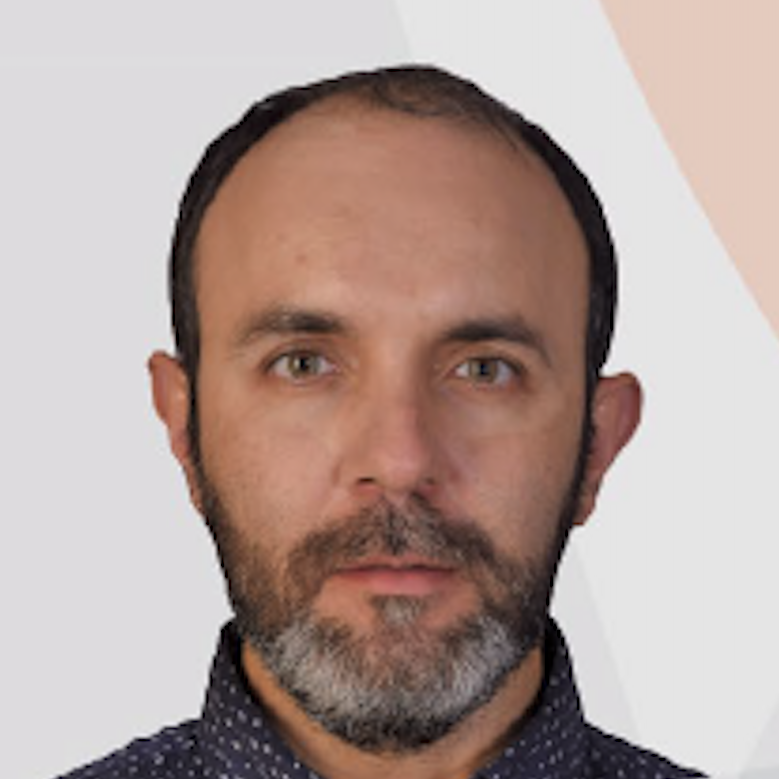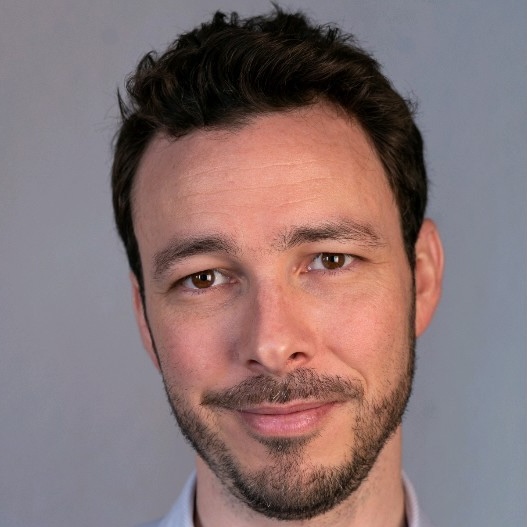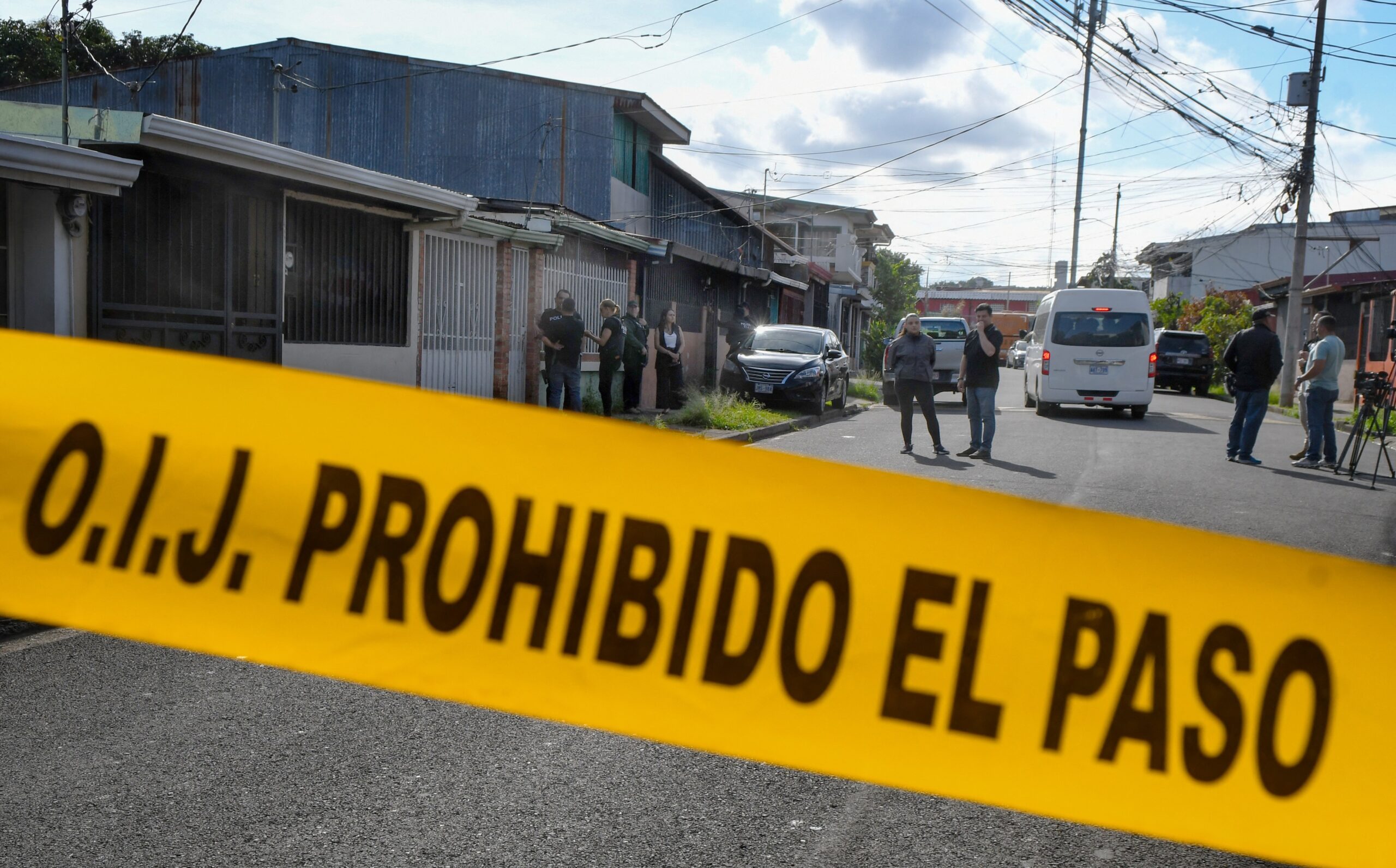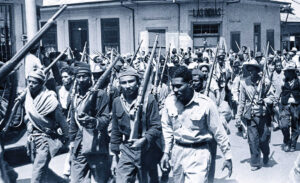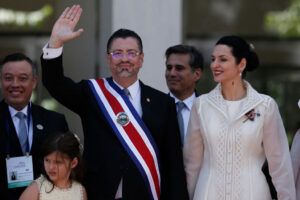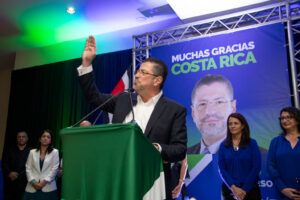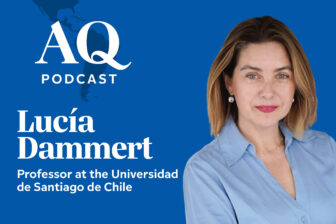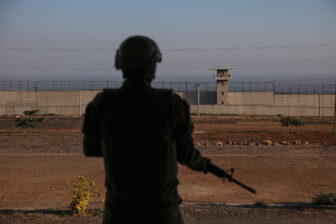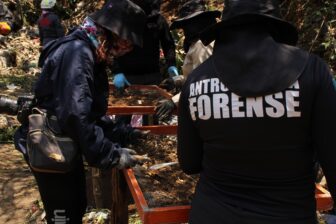SAN JOSÉ—Costa Rica’s foundational myth of exceptionalism has never been more in question. The country that famously has no armed forces, that has long welcomed refugees from its Central American peers, that marketed itself to the world as a “safe haven” in the wake of the September 11 terrorist attacks, is now questioning its very identity amid a surge of organized crime and political scandals.
Security has been deteriorating for years as Costa Rica became one of the region’s main transshipment points for cocaine and other drugs to the United States and Europe, according to the U.S. government. But this year has seen a series of events that some citizens used to believe only happened in neighboring countries.
In June, former Security Minister Celso Gamboa was arrested on drug trafficking charges and is now facing extradition to the United States. Gamboa, a lawyer who served as a key Cabinet member in 2014 and later worked as a judge from 2016 to 2018, would be among the first Costa Ricans to be extradited under a constitutional reform passed in May, which allows extradition for drug trafficking and terrorism.
Also in June, a retired Nicaraguan army major, Roberto Samcam Ruiz, was assassinated, raising alarms about the country’s ability to protect political exiles. According to the UNCHR, since 2018, 317,000 Nicaraguans have fled their country to Costa Rica seeking international protection—Costa Rica now hosts 55% of all Nicaraguan refugees worldwide.
A couple of months later, in August, Rodrigo Chaves became the first president ever to face a vote in the unicameral Legislative Assembly to suspend his immunity and stand trial over an alleged corruption scheme involving funds from the Central American Bank for Economic Integration (CABEI). The effort, tied to that corruption case and one involving illicit campaign financing, fell short of the two-thirds majority required to pass. Chaves denies wrongdoing.
These challenges, unusual by Costa Rican standards, have become a major theme ahead of presidential elections next February. In a recent poll by the University of Costa Rica, the categories related to security—security and crime, drug trafficking, and organized crime—ranked as the most critical issue for voters. Trailing right behind that are education, public health, and corruption.
Even so, however, President Chaves’ popularity has surged in the polls. His approval rating has been above 50% since November 2023 and climbed to 63% in October 2025, according to a recent survey by the Centro de Investgiación y Estudios Políticos-UCR (CIEP-UCR. That same poll shows 71% of respondents claiming the security situation had gotten worse in the previous 12 months.
Analysts and experts have attributed this tension to Chaves’ personalistic leadership and his confrontational communications strategy. Therefore, support for him might not carry over to his chosen candidate in the February presidential election: Laura Fernández, former Minister of the Presidency (2024-2025) and Minister of National Planning and Economic Policy (2022-2025). Although she is currently leading the polls with 25% support, 55% of voters remain undecided; many Costa Ricans are likely to decide their vote in the weeks leading up to Election Day.
Rising crime
Politicians from across the ideological spectrum have been brainstorming potential causes for the rise in crime. In August, former President Laura Chinchilla addressed the Permanent Special Commission of the Assembly on security and drug trafficking. “Today’s security crisis is real,” she said, “and the current administration is primarily responsible.”
Chinchilla said the crime surge does not stem from structural issues, but rather from a political failure to maintain the pillars of Costa Rican security as regional criminal pressure rises. Without an armed forces, Costa Rica’s security efforts used to be headlined by civil policing, the rule of law, and social programs—including those designed to cut inequality and foster social mobility. However, social spending as a percentage of GDP fell from a peak of 24.2% in 2020 to around 20.7% in 2024, its lowest level in the last decade. Plus, diminished coordination, declining public spending on education and health as a share of GDP, and eroding trust in institutions have rendered the country particularly vulnerable to a surge of criminal activity.
Added to this is organized crime, which has been escalating throughout the region. Over the past decade, the number of criminal organizations operating within Costa Rica has grown from 35 to 340, according to Security Minister Mario Zamora. Violence has also spilled beyond drug-related homicides, encompassing rising rates of robbery, femicides, contract killings, and corruption. The nation’s incarceration rate has climbed from 282 per 100,000 inhabitants in 2022 to 359 per 100,000 this year.
In 2017, the country registered what was then considered its most violent year, with 603 murders. That benchmark was surpassed in 2022 with 661 homicides, and then again with in 2023 with 907. Homicides fell slightly last year, but Costa Rica was still the seventh most violent country in the region, surpassing Guatemala and Panama, according to Insight Crime.
Chaves has said he is determined to crack down on crime, and borrowed some tactics from El Salvador’s President Nayib Bukele. In August, he approved the construction of a massive maximum-security prison inspired by El Salvador’s infamous CECOT.
Repercussions reach the “safe haven”
Meanwhile, investigations continue into the murder of Roberto Samcam. The director of Costa Rica’s judicial investigation agency (OIJ), Randall Zúñiga, has described Samcam’s murder as premeditated and suggested a possible connection to the Ortega regime in Nicaragua. Four people were recently arrested in connection with the murder, which was allegedly carried out for hire.
Despite mounting pressure, President Chaves has yet to comment publicly on the murder or its potential repercussions. His administration’s official stance has been to remain silent and wait for the investigation to end, a position that has been criticized by international observers and human rights groups. Analysts propose several explanations for his discretion: from procedural caution to avoid influencing the investigation, to the diplomatic and political costs of publicly acknowledging that Nicaraguan repression may have reached Costa Rican territory. Chaves’ own vulnerability amid accusations of corruption and the efforts to lift his immunity may also be discouraging him from a stronger response.
Costa Rica’s Legislative Assembly has called for an investigation and demanded that the government clarify the circumstances of the killing. Attorney General Carlo Díaz has not ruled out the possibility that the crime was politically motivated. If that is the case, lawyers argue that Costa Rica’s state may bear responsibility. This would be yet another blow to an image that is rapidly changing.


